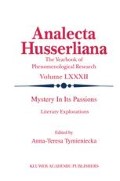Abstract
I will argue here that Tennyson’s InMemoriamis an authentic, sustained response to what Derrida has called differance.1My reading ofIn Memoriamis informed primarily by Derrida’s essayDemeurea discussion of Maurice Blanchot’s short story, “The Instant of My Death,” which is the story of a young man, to some extent Blanchot himself, who is forced from his Château by French Nazi soldiers, sentenced to death by firing squad, and then not killed (the execution is interrupted by noises of a battle raging nearby). But during the instant of reprieve, the young man feels “a feeling of extraordinary lightness, a sort of beatitude (nothing happy, however) – sovereign elation? The encounter of death with death?” (Demeure5). This feeling, the feeling of death encountering death, of death dying, stayed with the young man for fifty years until, as an old man, he wrote this story about it. Tennyson’sIn Memoriamis also a story about a close encounter with death. Like Blanchot’s story, the poem also details the experience of a feeling resembling catharsis. And in both works, this feeling is presented as being unanalyzable: “In his place, I will not try to analyze,” Blanchot writes (Demeure5), and Tennyson insists, “I sometimes hold it half a sin/To put in words the grief I feel” (5.1–2). Derrida’s essay on Blanchot’s story explores this unanalyzable feeling the young man experiences, showing 1) why it cannot be analyzed, and 2) why it is, while not happiness, a positive feeling rather than a negative one. This last is important because, while deconstruction is often assumed to be a somehow negative or nihilistic enterprise, it is actually a discourse of affirmation.2And since these works by Blanchot and Tennyson have so much in common, it will be interesting to see what Derrida’s analysis brings to our reading of Tennyson
Access this chapter
Tax calculation will be finalised at checkout
Purchases are for personal use only
Preview
Unable to display preview. Download preview PDF.
Editor information
Editors and Affiliations
Rights and permissions
Copyright information
© 2004 Springer Science+Business Media Dordrecht
About this chapter
Cite this chapter
Beidler, P. (2004). Meditation and Mediation, Secrets and Seizures: Tennyson’s in Memoriam as Fiction/Testimony. In: Tymieniecka, AT. (eds) Mystery in its Passions: Literary Explorations. Analecta Husserliana, vol 82. Springer, Dordrecht. https://doi.org/10.1007/978-94-007-1017-7_6
Download citation
DOI: https://doi.org/10.1007/978-94-007-1017-7_6
Publisher Name: Springer, Dordrecht
Print ISBN: 978-94-010-3769-3
Online ISBN: 978-94-007-1017-7
eBook Packages: Springer Book Archive

